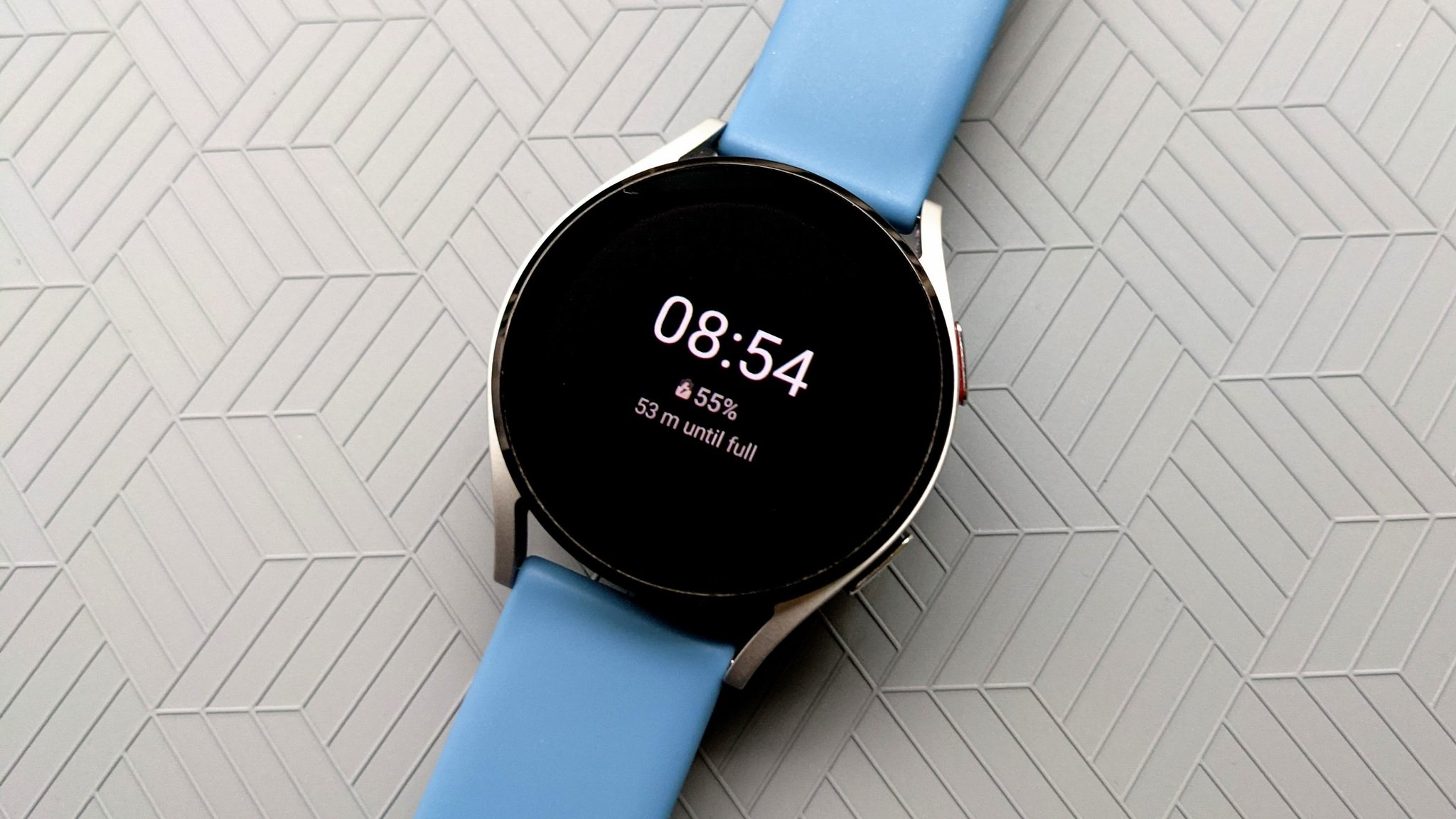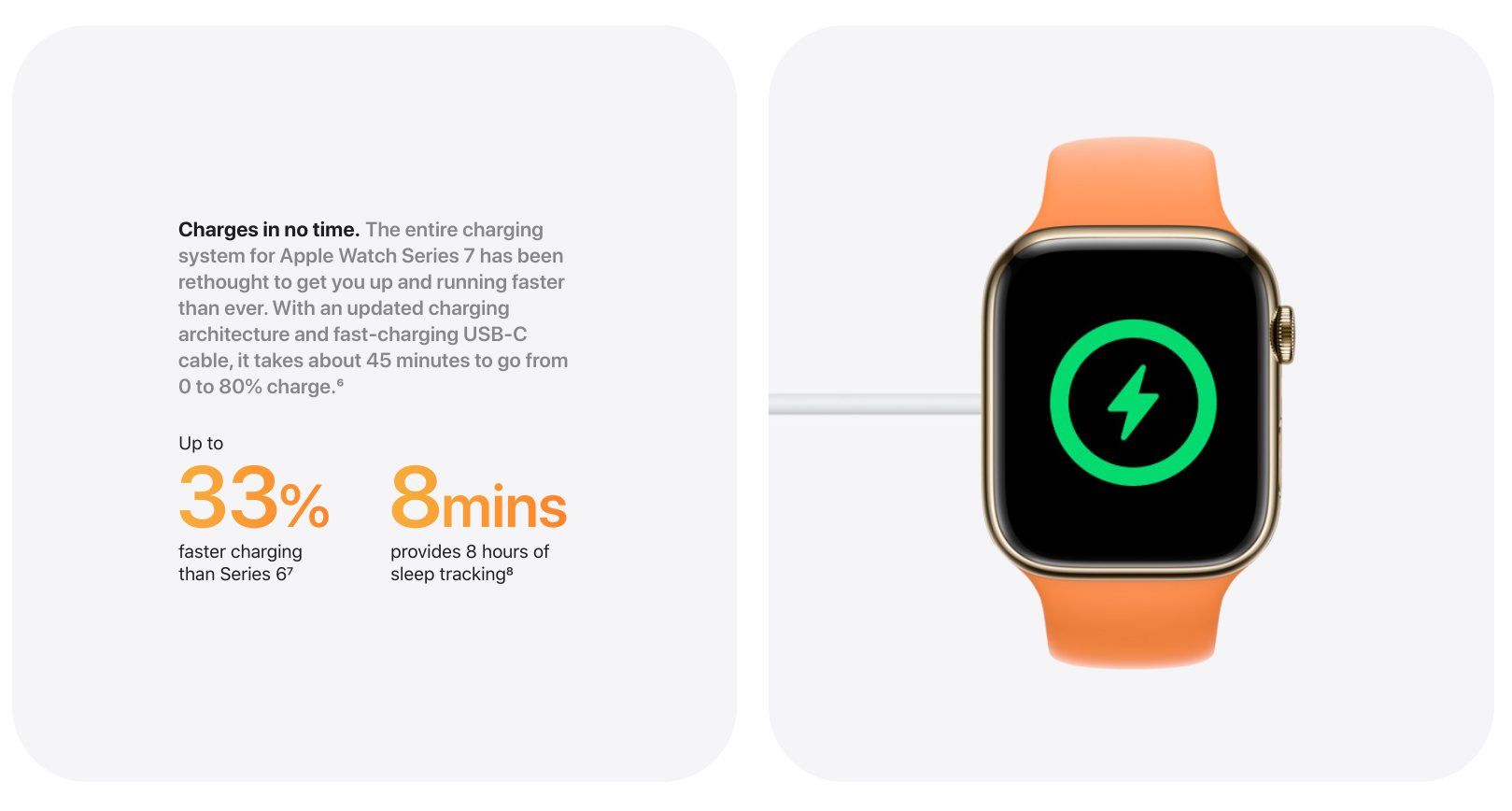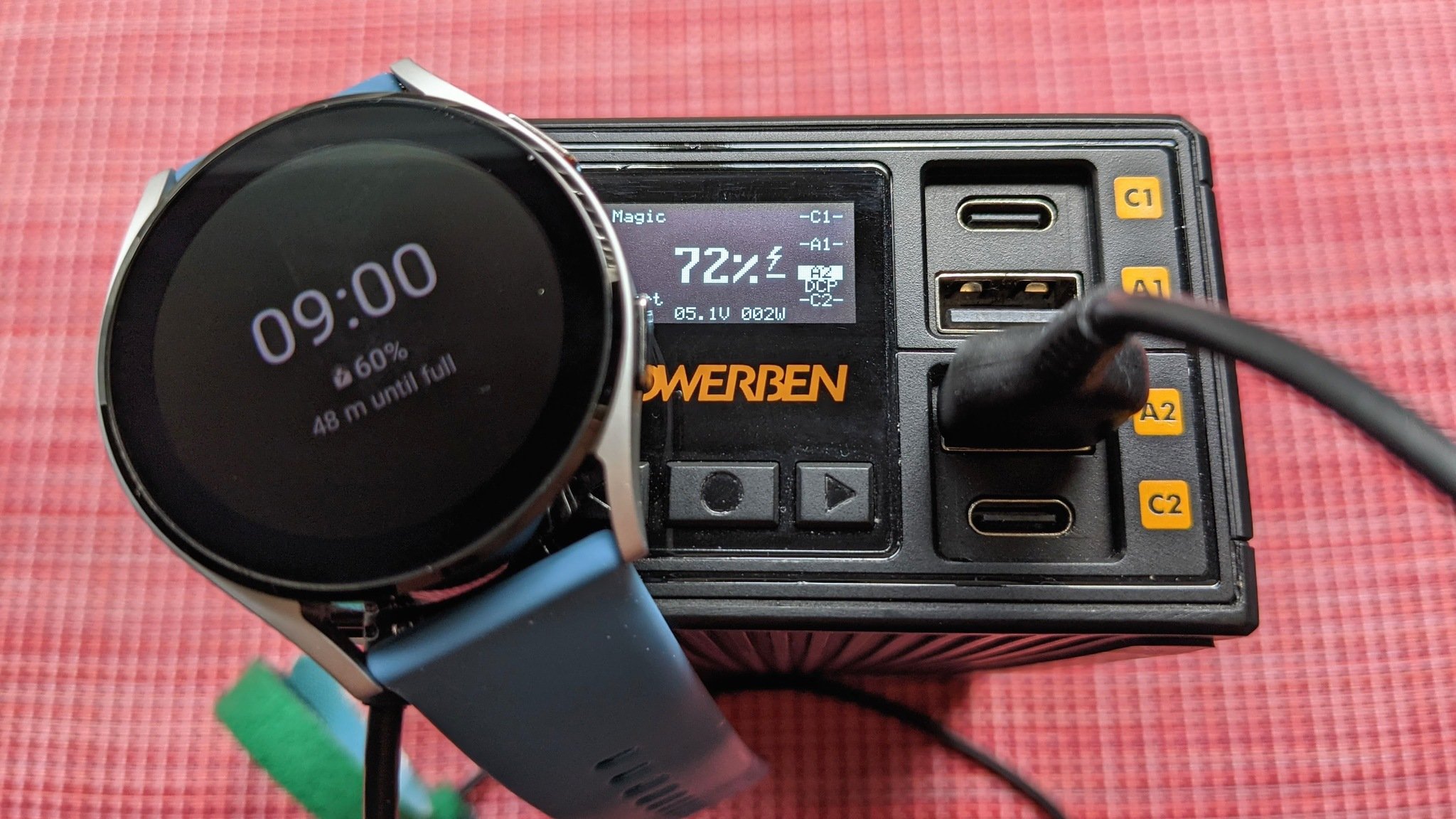The Apple Watch Series 7's charging destroys the Galaxy Watch 4

Need to charge a dead Galaxy Watch 4? Throw it on a charger and then put on a two-hour movie.
When I upgraded from the Galaxy Watch Active to the Samsung Galaxy Watch 4, I expected an upgrade in just about every way. Wear OS 3 brought us Google Play apps and services while the One UI Watch skin gave us the software fit and polish Samsung is known, and there are more health tracking features than ever, even if the most advanced ones are limited to Galaxy phones. Unfortunately, the battery has only lasted about 24-36 hours on a charge, and recharges are slower than the Watch Active, too.
Meanwhile, Apple's upcoming Apple Watch Series 7 is packing a new USB-C-plugged wireless charger that works with Power Delivery for faster speeds. The Apple Watch Series 7 might not be sporting any processor or sensor upgrades, but battery improvements are more important to the product and the people who use it. I just wish Samsung had realized that, too.
Smartwatches are meant to be worn all the time. They're swim-proof and water-resistant, so we don't have to take them off when swimming, doing dishes, or going through our nightly makeup remover and facial cleanser routine. They have dust proofing so you can keep them on while mowing the lawn or tending the garden. And these days, they pretty much all have sleep tracking. That's why the amount of time a watch has to spend off your wrist needs to be as short as possible.
Apple is very, very cognizant of this, given that it usually lasts less than a full day and thus needs to top back off before bed and again in the morning, and recharging a dead Apple Watch today means taking it off for 2-3 hours. That's why the switch to a faster charger — with a USB-C plug compatible with the iPhone's 20W charger, no less — was crucial for Apple, allowing it to cut charge times down dramatically, getting your Apple Watch back on your wrist where it belongs.
While Apple could have increased capacity, maintaining its slim profile was paramount. When speaking to Gene Munster, Managing Partner at Loup Ventures, he believed Apple was right to prioritize charging speeds:
"There's the balancing act of battery life and form factory. I believe the winning formula for consumers is a sleeker form factor and faster charge times. The full-day battery is less appealing given the more bulky form factor. Putting it together, Apple is winning given the importance of design when it comes to watches."
— Gene Munster
That strategy could work out quite well for the Series 7 when it launches, but for the Galaxy Watch 4, it's a little too late for Samsung to learn from it. It might be helpful on the Galaxy Watch 5, but that'll be little comfort to Galaxy Watch 4 users who have to charge more often and for longer periods.
With my Galaxy Watch Active, it'd usually be around 25% to 35% in the morning, so I'd throw it on the charger and take my 10 to 20-minute shower. Then, after getting dried and dressed again, the Watch Active would be back to at least 85% and ready for a full day of notifications and heartrate tracking. With the Galaxy Watch 4, I have to leave it on the charger for a solid hour every morning or more, and many other users have resulted to charging twice a day to keep it topped up.
The combination of keeping the same battery capacity as the Galaxy Watch Active 2 and the increased power usage by Wear OS leaves the power situation on the Galaxy Watch 4. Further compounding this problem, Samsung still uses a 2W wireless charger that plugs into a basic USB-A port, with no fast-charging option other than pointing a table fan at it to keep charging speeds from being throttled for heat so quickly.
The slow charging gets even more apparent once you try other smartwatches. When Micheal Fisher reviewed the Fossil Gen 6, he was quick to notice how much faster the Gen 6 charged than the Galaxy Watch 4, and I've experienced the same on my Gen 5E. The two-hour recharge on the Galaxy Watch 4 is almost as bad as the Apple Watch, but with the Series 7, that will change and leave Samsung alone at the bottom.
In recent years, Samsung has been extra careful when it comes to charging speeds and heat buildup, limiting the Galaxy Z Fold 3 and Flip 3 to 15W wired charging, as well as a number of its A-series phones. This caution helps the slow charging speeds make some sense, but it doesn't excuse it. Users shouldn't need to factor in two charging times a day for a watch that advertised two-day battery life, and while optimizations can help the battery last a little longer, that slow charging speed is here to stay.
The Galaxy Watch 4 is still the best Android smartwatch you can buy today, and I have no intention of returning mine over a battery that comfortably lasts a full day out and about. Having to charge it more often just means I'll have to pay more attention to my phone when I'm home, as my watch's primary function is to vibrate me out of my focus when I get a push notification from work or family. Samsung needs to do better in the future, or this might be the last Samsung wearable I give my money to.
The new Wear OS
Samsung Galaxy Watch 4
From $250 at Best Buy (Galaxy Watch 4) From $250 at Amazon (Galaxy Watch 4)
The full power of Wear OS 3 and a slow charger.
The Galaxy Watch 4 is the first smartwatch to run the new Wear OS powered by Samsung. It finally gives us the polished, smooth performance Samsung is known for, while also giving us access to the Google services and Google Play app store. Optimizations still need to be made to improve battery life and performance, but just out of the gate, the Watch 4 still gets almost everything right.





No comments